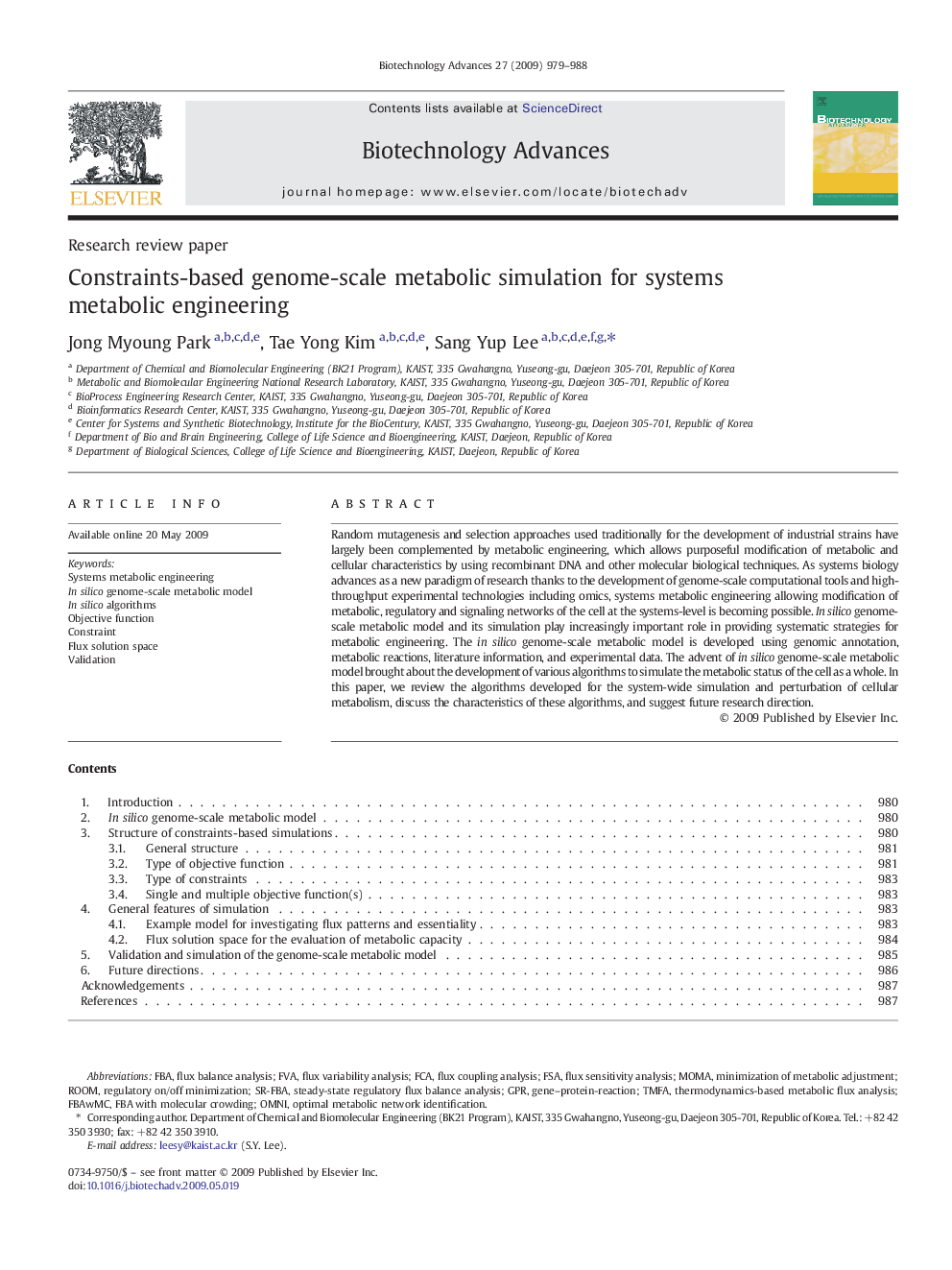| Article ID | Journal | Published Year | Pages | File Type |
|---|---|---|---|---|
| 14667 | Biotechnology Advances | 2009 | 10 Pages |
Random mutagenesis and selection approaches used traditionally for the development of industrial strains have largely been complemented by metabolic engineering, which allows purposeful modification of metabolic and cellular characteristics by using recombinant DNA and other molecular biological techniques. As systems biology advances as a new paradigm of research thanks to the development of genome-scale computational tools and high-throughput experimental technologies including omics, systems metabolic engineering allowing modification of metabolic, regulatory and signaling networks of the cell at the systems-level is becoming possible. In silico genome-scale metabolic model and its simulation play increasingly important role in providing systematic strategies for metabolic engineering. The in silico genome-scale metabolic model is developed using genomic annotation, metabolic reactions, literature information, and experimental data. The advent of in silico genome-scale metabolic model brought about the development of various algorithms to simulate the metabolic status of the cell as a whole. In this paper, we review the algorithms developed for the system-wide simulation and perturbation of cellular metabolism, discuss the characteristics of these algorithms, and suggest future research direction.
